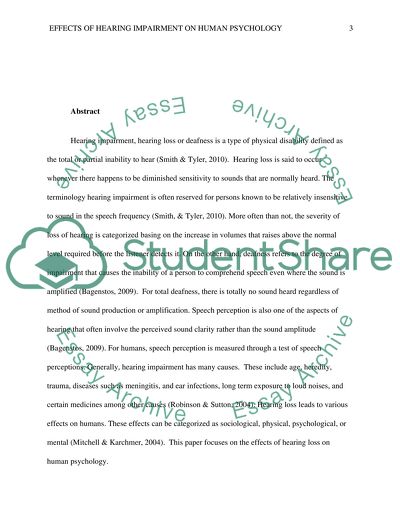Cite this document
(“Effects of Hearing Impairment on Human Psychology Research Paper”, n.d.)
Effects of Hearing Impairment on Human Psychology Research Paper. Retrieved from https://studentshare.org/psychology/1460485-pick-a-physical-disability-and-explain-how-does-it
Effects of Hearing Impairment on Human Psychology Research Paper. Retrieved from https://studentshare.org/psychology/1460485-pick-a-physical-disability-and-explain-how-does-it
(Effects of Hearing Impairment on Human Psychology Research Paper)
Effects of Hearing Impairment on Human Psychology Research Paper. https://studentshare.org/psychology/1460485-pick-a-physical-disability-and-explain-how-does-it.
Effects of Hearing Impairment on Human Psychology Research Paper. https://studentshare.org/psychology/1460485-pick-a-physical-disability-and-explain-how-does-it.
“Effects of Hearing Impairment on Human Psychology Research Paper”, n.d. https://studentshare.org/psychology/1460485-pick-a-physical-disability-and-explain-how-does-it.


